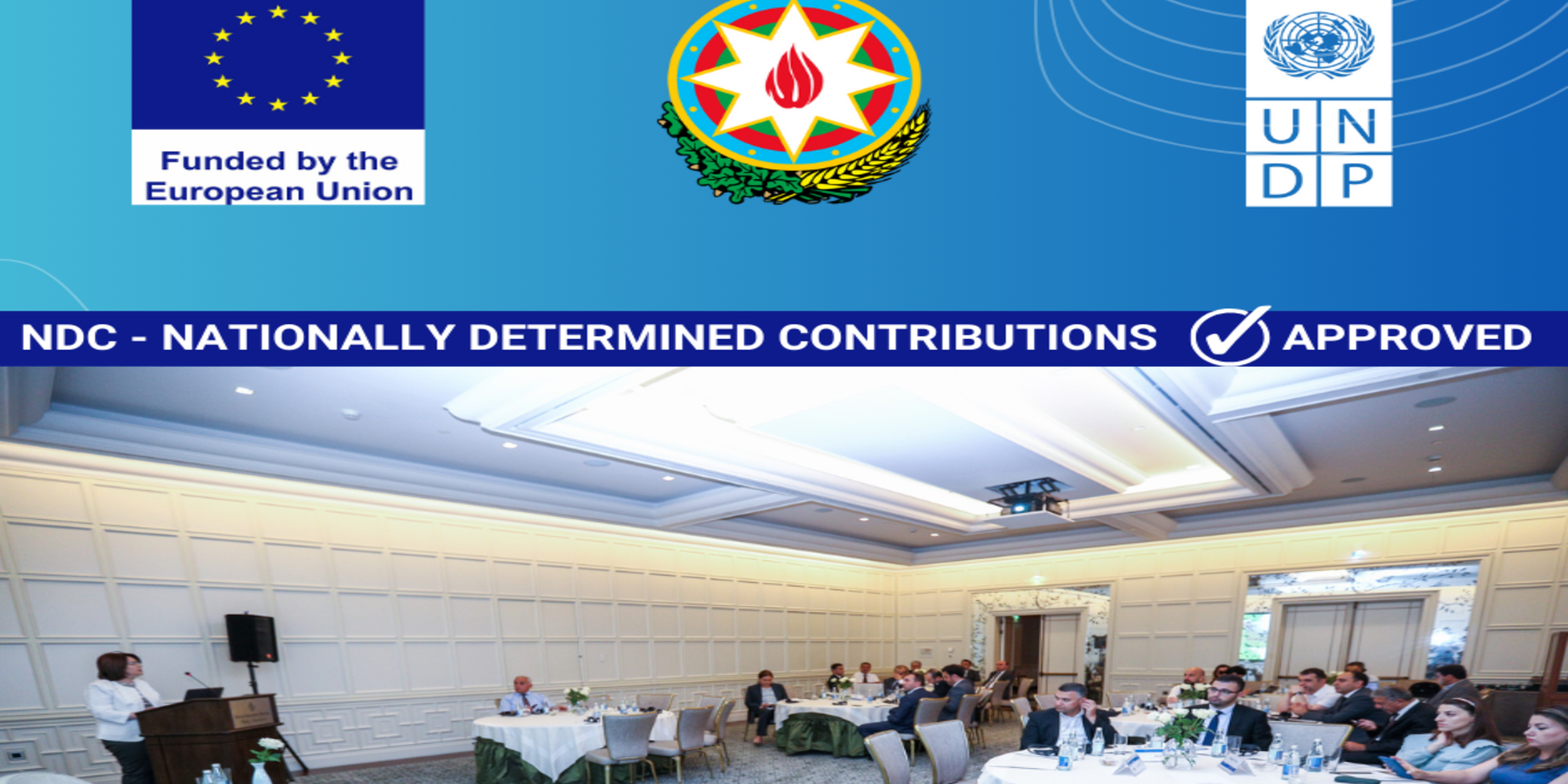Azerbaijan has pledged to achieve a substantial 40% reduction in greenhouse gas emissions by 2050 compared to the 1990 levels. This commitment was outlined in its updated Nationally Determined Contributions (NDC) developed under the EU4Climate project and submitted to UNFCCC after the approval of the Government of Azerbaijan. This target showcases Azerbaijan’s dedication to mitigating climate change and its adverse effects on the environment.
During the process of the NDC report preparation, specific attention was given to the climate finance landscape of Azerbaijan. The assessment included a review of funding gaps necessitating private sector investments to drive Azerbaijan toward achieving its climate targets. The evaluation also emphasized the importance of gender policies, and multilateral financial mechanisms such as the Green Climate Fund (GCF), Global Environment Facility (GEF), Adaptation Fund (AF), and other relevant climate finance strategies and mechanisms.
Azerbaijan has also taken stock of the Clean Development Mechanism project pipelines within the country, as well as Nationally Appropriate Mitigation Action (NAMA) project pipelines or work programs. By understanding the existing initiatives, Azerbaijan aims to align its efforts with successful models, ensuring a more sustainable and impactful approach to climate action.
In accordance with Article 6 of the Paris Agreement, EU4Climate has initiated the development of a carbon market potential assessment of Azerbaijan. The report analyzes the country’s abatement potential outlined in its Nationally Determined Contributions, emphasizing the assessment of carbon market options. It particularly focuses on identifying prospective abatement strategies in renewable energy to align with the long-term decarbonization goals of the Azerbaijani economy, seeking to generate economic returns from carbon markets and support sustainable developmental objectives.
As part of this comprehensive approach, Azerbaijan is set to develop NDC Financing Strategies. The submitted Implementation and Finance Roadmap outlines key initiatives and a comprehensive approach. This involves the identification of diverse funding sources, encompassing public, international, and private investments. Additionally, the strategies underscore the need for capacity building, stakeholder engagement, and innovative financial mechanisms to mobilize climate finance effectively. It includes detailed climate finance strategies, an implementation roadmap, policy recommendations for financial reforms, and robust monitoring and evaluation mechanisms, all geared towards achieving the country’s climate change goals.
By adopting ambitious targets, engaging in international cooperation, and investing in capacity building, Azerbaijan is poised to make significant strides towards a greener and more sustainable future.



